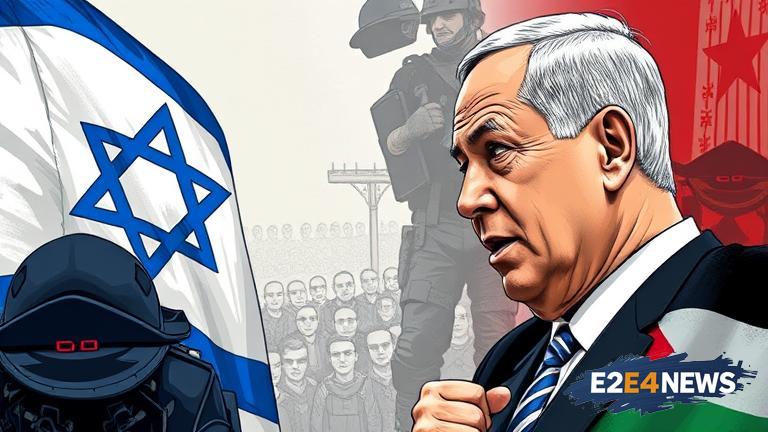The Israeli government, led by Prime Minister Benjamin Netanyahu, is planning to push for full occupation of the Gaza Strip, a move that has sparked widespread concern and criticism from the international community. The decision is seen as a significant escalation of the ongoing conflict between Israel and Palestine, with many fearing it could lead to further violence and human rights abuses. The Gaza Strip, a coastal region bordering Egypt and Israel, has been under Israeli occupation since 1967, with the Israeli military controlling its borders, airspace, and territorial waters. The region has been the site of numerous conflicts and humanitarian crises, including the 2014 Gaza War, which resulted in the deaths of over 2,000 Palestinians and 73 Israelis. Netanyahu’s plan for full occupation is seen as a response to the growing threat of Hamas, the Islamist militant group that has controlled Gaza since 2007. However, critics argue that the move will only serve to exacerbate the situation, leading to further suffering and displacement of the Palestinian population. The international community, including the United Nations and the European Union, has repeatedly called for a two-state solution to the conflict, with Israel and Palestine living side by side in peace and security. However, Netanyahu’s government has shown little willingness to engage in meaningful negotiations, instead pursuing a policy of settlement expansion and occupation. The human cost of the conflict has been devastating, with thousands of Palestinians killed or injured in recent years, and many more forced to live in poverty and squalor. The Gaza Strip is one of the most densely populated places on earth, with over 2 million people living in a region roughly the size of the city of Detroit. The economy is in shambles, with unemployment rates soaring and poverty widespread. The healthcare system is also on the brink of collapse, with hospitals and medical facilities struggling to cope with the influx of wounded patients. The psychological toll of the conflict should not be underestimated, with many Palestinians suffering from trauma and anxiety. The international community has a responsibility to act, to pressure Israel to end its occupation and pursue a path of peace and reconciliation. The United States, in particular, has a significant role to play, given its close relationship with Israel and its position as a global leader. However, the Trump administration’s decision to recognize Jerusalem as Israel’s capital and move the US embassy there has been widely seen as a setback for peace efforts. The European Union has also been criticized for its failure to take a stronger stance against Israel’s occupation, despite its vocal support for a two-state solution. As the situation in Gaza continues to deteriorate, it is imperative that the international community takes action, to prevent further suffering and to promote a lasting and just peace. The consequences of inaction will be catastrophic, with the potential for further violence, displacement, and human rights abuses. The world cannot afford to stand idly by while the people of Gaza suffer, and it is incumbent upon leaders to take a strong and principled stance against occupation and in favor of peace and justice. The Israeli government’s actions are a clear violation of international law, and it is the responsibility of the international community to hold them accountable. The use of military force against civilians is a war crime, and those responsible must be brought to justice. The occupation of Gaza is a stain on the conscience of the world, and it is imperative that it is brought to an end. The people of Gaza deserve to live in peace and dignity, with access to basic human rights and freedoms. It is the responsibility of the international community to ensure that this happens, and to hold leaders accountable for their actions. The time for empty words and gestures is over, and it is time for concrete action to be taken. The world is watching, and it is imperative that leaders take a strong and principled stance against occupation and in favor of peace and justice.





